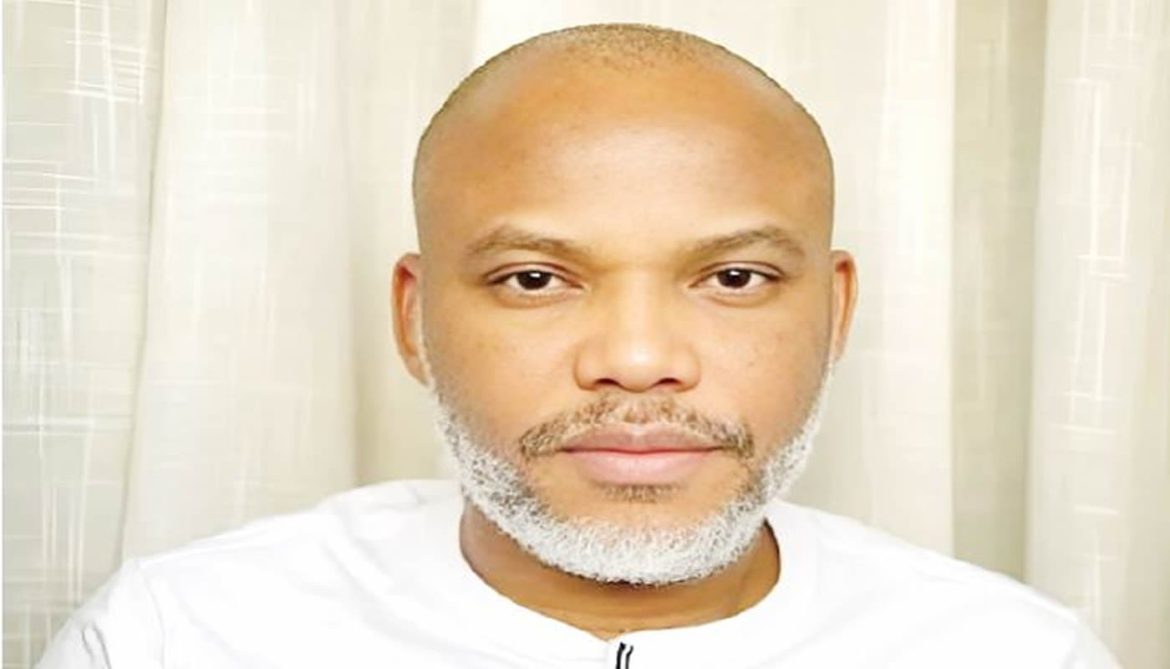The family of the detained leader of the Indigenous People of Biafra, Nnamdi Kanu, has rejected the recent judgment delivered by Justice James Omotosho of the Federal High Court in Abuja. The family said the ruling ignored constitutional protections and earlier decisions of the Court of Appeal and the Supreme Court.
In a statement issued on Monday and signed by Emmanuel Kanu on behalf of the Okwu Kanu family, they said they were speaking “with heavy hearts but absolute clarity” about the judgment. The family explained that several legal issues were raised before the court, including Section 36(12) of the Constitution, earlier Supreme Court decisions on repealed laws, and directives related to previous charges against Kanu.
They stressed that the Constitution makes it clear that no person can be convicted unless the alleged offence is defined in a written law that was in force at the time. According to them, decisions of the Supreme Court also support this principle, which is meant to protect citizens from unlawful prosecution.
The family said their concerns were mainly about how the court interpreted transition or savings clauses in the law. They argued that the clause relied upon by the court may not apply to Kanu’s case because, in their view, there was no pending matter for the clause to save.
They said the Court of Appeal had already discharged and acquitted Kanu, and that decision effectively ended all the previous charges. “The charges were terminated. What was filed before Justice Omotosho was a new case, starting afresh,” the family stated.
They maintained that a matter already concluded by the Court of Appeal cannot be revived by a transition clause in any legislation. According to them, once the earlier case ended, nothing remained pending that could be preserved under the clause.
The family also expressed concerns about possible violations of Kanu’s rights under Section 36 of the Constitution. They said the right to be tried only under laws that were valid at the time of the alleged offence, the right to be informed clearly of the charges, and the right not to be convicted under repealed or invalid laws are fundamental and cannot be set aside.
“No transition clause can override Section 36. No statute can override the Constitution. No judge can override the Supreme Court,” the family added, stressing the hierarchy of legal authority in Nigeria’s justice system. They insisted that any court decision must align with the Constitution, which remains the supreme law of the country.
The statement ended with a call on the judiciary and all institutions involved in the matter to ensure full compliance with the Constitution and the established legal process. They urged that “all proceedings should align with existing laws and procedures.”
PUNCH Online had earlier reported that the Federal High Court in Abuja sentenced the IPOB leader to life imprisonment after convicting him on seven counts of terrorism-related offences. Justice Omotosho delivered the ruling after considering evidence presented by the prosecution and found Kanu guilty on all charges.
The judge sentenced him to life imprisonment on counts one, two, four, five, and six. He also imposed a 20-year jail term on count three and a five-year jail term on count seven, both without the option of a fine. The judgment marks one of the most significant developments in Kanu’s long-running legal battle with the Federal Government.
The ruling has drawn different reactions across the country, with some groups calling for calm while others argue that the judgment raises fresh questions about due process and the state of human rights in Nigeria. Kanu’s family maintains that the conviction cannot stand because earlier court decisions discharged him and annulled previous charges.
They insisted that the life sentence contradicts both constitutional protections and binding court decisions, and vowed to continue seeking legal redress. The family also appealed to the international community to pay closer attention to what they described as violations of established legal norms.
As the debate continues, legal experts say the matter may eventually return to the Court of Appeal or even the Supreme Court, depending on how Kanu’s legal team responds to the new judgment. For now, the family says it remains committed to pursuing justice through lawful means and demanding full respect for constitutional rights.
